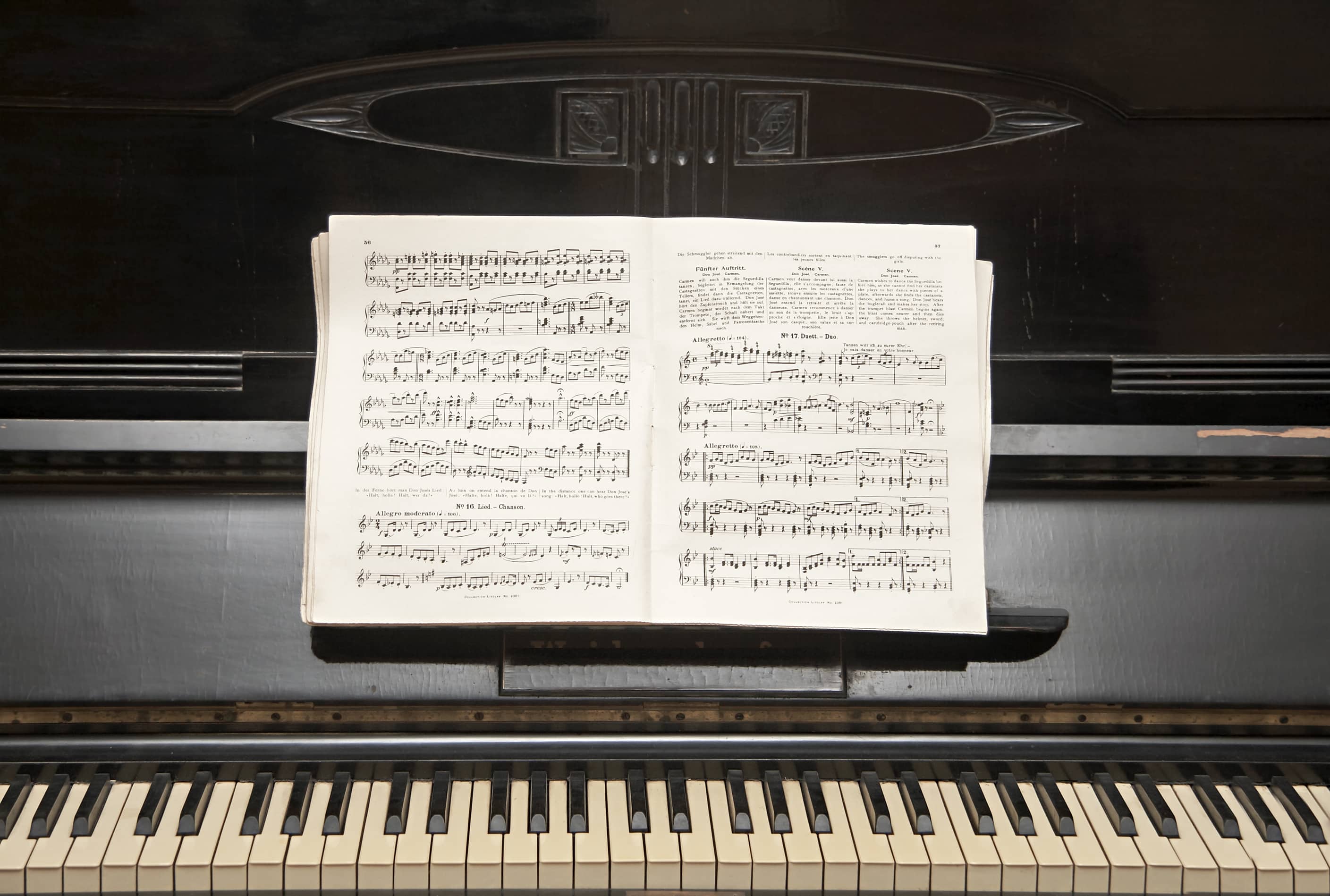
When it comes to learning to play the piano, we’re often asked whether it is better to learn by reading sheet music or by playing by ear. This question has often been debated by students, teachers and musicians alike, with proponents on both sides. To find the answer, let’s look at the pros and cons of each.
Playing by Ear
Musicians with the ability to play music by ear can listen to a piece of music once or twice and then play it back without needing to read the notes on sheet music. To play music by ear well takes a lot of talent, and very few can truly master the skill. Playing by ear requires you to listen carefully to each note along with the music’s rhythm, mentally breaking down the music while later piecing it together with the appropriate hand movements to imitate what you’ve just heard. By its nature playing music by ear leads to improvisation and creativity as you work to replay the piece from the memory of what you’ve heard. And who wouldn’t want to just sit down at the piano and start playing a song from memory, without needing sheet music?
In many cases, playing by ear is more of a trial-and-error way of playing music. You’ll be able to pick up the simple melodies, but as pieces become more complex it becomes much more difficult to play the song as intended by the composer. You could be making mistakes and not even know it.
Reading Sheet Music
Learning to play by reading sheet music, otherwise known as sight-reading, means being able to read musical notes on a page and play the song as it is written. The sheet music includes information on the pitch, speed and rhythm of the music as detailed on the page by the song’s composer.
An important part of learning how to read music is the addition of music theory which provides a foundation for understanding all elements of music, including notation, rhythm, melody, harmony, musical articulation, time signatures, scales and chord progressions. This, along with the ability to decipher the notes, provides the musician with a roadmap for how to play each piece and how it should sound. Learning to read sheet music along with learning music theory takes time. But once you can read music, you’ll be able to play music you’ve never heard before, simply by reading the notes on the page. Any piece of music that matches your skill level can be played without ever having to hear the music first.
Which is Better?
Think of reading sheet music as reading a novel aloud to a group of friends. When you have the book in front of you, you can read every word on the page, describe every detail the author intended, every nuanced emotion and all the twists and turns of the storyline. Playing by ear is more akin to telling the story from memory. You may recall the general plotline correctly, but the tone, the emotion and many of the details of the story that the author weaves throughout the book may be forgotten.
To truly understand the intent of the composer, reading sheet music is important. And for those looking to write their own songs, learning to write music for others to read requires an understanding of music theory and the ability to read music.
So, which is more important? Both skills have their place, and both are helpful in the quest to be a better musician, but we would consider playing by ear as secondary to reading sheet music. Certainly, having the ability to do both will make you a more well-rounded musician but if you ever want to play Carnegie Hall, reading sheet music is going to be an essential skill and well-worth the extra discipline and commitment.
